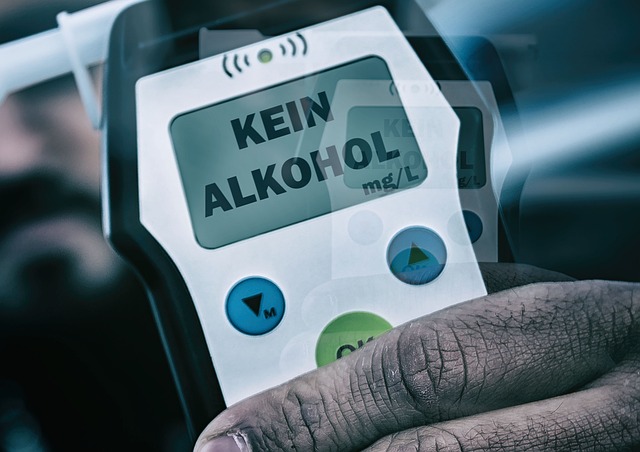In the rapidly growing ride-sharing industry, prioritizing driver accountability is crucial for passenger safety and service integrity. This involves stringent background checks, random substance testing, and continuous monitoring during trips, with a specific focus on individuals with criminal records, especially those with expunged DUI cases. Through initiatives like Criminal Record Expungement after DUI, companies can thoroughly screen drivers, foster trust, and enhance the overall passenger experience in the digital age. This approach promotes diversity, inclusivity, and economic mobility for formerly convicted individuals while ensuring only trustworthy people operate vehicles through robust background checks and advanced technology. Cities adopting these policies have seen reduced accident rates and improved customer satisfaction.
In the ever-evolving landscape of ride-sharing, ensuring passenger safety through driver accountability is paramount. This article delves into critical aspects shaping the industry’s safety standards, focusing on criminal records and DUI convictions. We explore how criminal record expungement post-DUI can offer second chances to drivers while enhancing overall safety. From regulatory frameworks to technological advancements in background checks, we present a comprehensive guide. Additionally, real-world case studies highlight successful driver accountability programs, offering insights into best practices for a safer ride-sharing future.
- Understanding Ride-Sharing Driver Accountability
- The Impact of Criminal Records on Employment in Ride-Sharing
- Expungement of DUI Convictions: A Path to Second Chances
- Regulatory Frameworks for Ensuring Driver Safety
- The Role of Technology in Background Checks and Monitoring
- Case Studies: Successful Implementation of Driver Accountability Programs
Understanding Ride-Sharing Driver Accountability

In the dynamic landscape of ride-sharing, ensuring accountability among drivers is paramount for passenger safety and service reliability. Ride-sharing driver accountability involves a multi-faceted approach, encompassing rigorous background checks, random drug and alcohol testing, and continuous monitoring during trips. This stringent system aims to weed out individuals with potential risks, such as those with criminal records, particularly focusing on expunged DUI cases, ensuring they adhere to legal standards and maintain the highest safety protocols.
Drivers are expected to undergo comprehensive screenings, including verifying their criminal histories and addressing any past offenses through initiatives like Criminal Record Expungement after DUI. This meticulous process allows for a nuanced understanding of driver profiles, enabling ride-sharing companies to make informed decisions. By holding drivers accountable, these measures contribute to fostering a culture of trust, security, and professionalism within the industry, ultimately enhancing the overall experience for passengers relying on these services in today’s digital era.
The Impact of Criminal Records on Employment in Ride-Sharing

In the realm of ride-sharing, ensuring driver accountability is paramount for safety and public trust. One significant aspect that often comes into play is the consideration of criminal records. In particular, previous convictions, such as DUI (Driving Under the Influence), can pose challenges for individuals seeking employment as ride-sharing drivers. Despite the stigma often associated with criminal history, many companies are recognizing the value in providing second chances and offering opportunities for rehabilitation.
However, the presence of a criminal record, especially a DUI, does not necessarily mean automatic rejection. Several initiatives, including criminal record expungement after DUI, aim to seal or erase these past convictions from an individual’s legal history. This process allows individuals to apply for ride-sharing jobs without the fear of immediate disqualification. By embracing these opportunities and supporting rehabilitation, ride-sharing companies can foster diversity, inclusivity, and access to economic mobility for those who have served their time and are striving for a fresh start.
Expungement of DUI Convictions: A Path to Second Chances

In many jurisdictions, individuals with a history of DUI (driving under the influence) can seek criminal record expungement after completing their sentence. This process allows them to have their records sealed or eliminated, offering a fresh start and removing the permanent stigma associated with a DUI conviction. Expungement is seen as a crucial step towards rehabilitation, especially for ride-sharing drivers who often bear the responsibility of transporting others.
By clearing their criminal record, individuals can bypass potential barriers that may prevent them from securing employment in the future, including jobs as ride-sharing drivers. This second chance initiative acknowledges that past mistakes do not necessarily define an individual’s present capabilities and character, fostering a more inclusive environment for those looking to reintegrate into society and contribute positively, especially within the growing ride-sharing industry.
Regulatory Frameworks for Ensuring Driver Safety

Ride-sharing services have brought significant convenience, but ensuring driver safety is paramount. Regulatory frameworks play a crucial role in this, particularly when it comes to screening drivers. One essential aspect is checking for any criminal records, especially focusing on expungement after DUI (Driving Under the Influence) convictions. These measures help identify and mitigate potential risks.
By implementing robust background checks, including verifying criminal record expungements, ride-sharing companies can ensure that only safe and trustworthy individuals operate their vehicles. This process involves meticulous scrutiny of past behaviors to predict future performance, ensuring passenger safety is a top priority.
The Role of Technology in Background Checks and Monitoring

The integration of technology has significantly enhanced background check processes for ride-sharing drivers, allowing for more comprehensive and efficient screening. Advanced digital systems enable thorough verification of criminal records, including the potential expungement after DUI convictions. By leveraging machine learning algorithms and extensive databases, these platforms can quickly cross-reference driver information against multiple sources, reducing human error and increasing accuracy.
Real-time monitoring is another technological advancement that plays a pivotal role in maintaining safety. GPS tracking and on-demand ride inspection tools enable supervisors to track drivers’ locations, ensure adherence to safety protocols, and promptly address any concerning behaviors. This technology not only helps in identifying potential issues but also serves as a deterrent, promoting responsible driving practices among professionals in the ride-sharing industry.
Case Studies: Successful Implementation of Driver Accountability Programs

In recent years, many ride-sharing companies have recognized the need for robust driver accountability programs to ensure safety and maintain public trust. Successful implementation has been seen in regions where strict background checks are conducted, including criminal record expungement processes tailored for individuals with past DUI convictions. These programs often involve multiple layers of verification, regular recertification, and ongoing training, allowing companies to carefully screen and monitor drivers.
For instance, some cities have adopted policies that require ride-sharing drivers to undergo enhanced background checks, with a focus on expunging minor offenses, including DUIs, from their records. This approach not only reduces the risk of unsafe individuals operating vehicles but also offers a chance for rehabilitation and reintegration into society. Case studies have shown that such initiatives can lead to decreased accident rates and improved customer satisfaction, highlighting the positive impact of driver accountability on the ride-sharing industry.
Ride-sharing has transformed the way people travel, but ensuring driver safety is paramount. By implementing robust regulatory frameworks and leveraging technology for background checks and monitoring, the industry can foster accountability. The impact of criminal records, including past DUI convictions, on employment can be mitigated through initiatives like criminal record expungement, offering second chances to those who have reformed. Successful case studies demonstrate that a comprehensive approach to driver accountability not only enhances passenger safety but also contributes to the social reintegration of individuals with prior legal issues.






